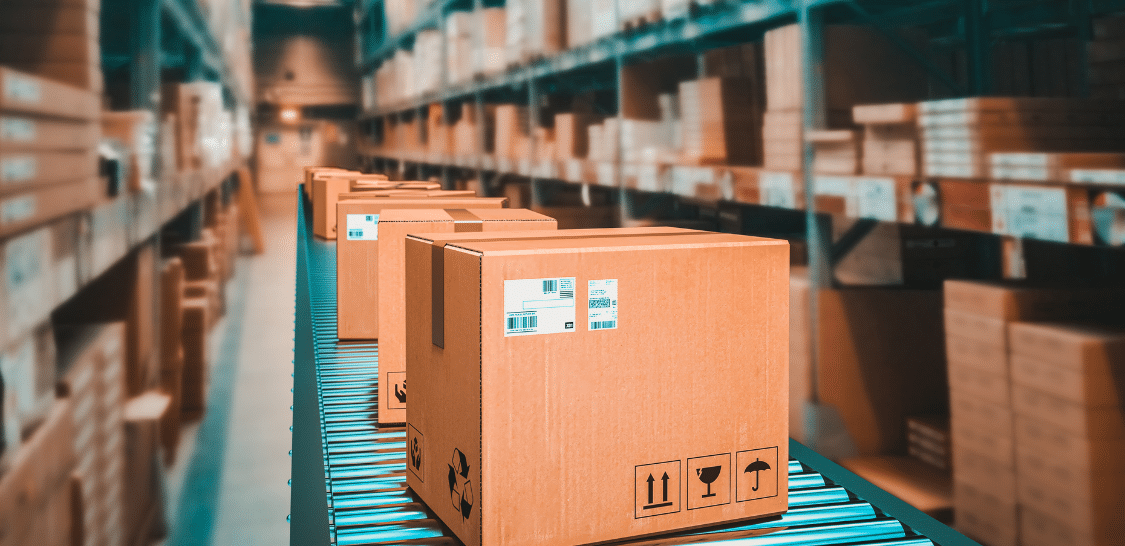Running a business is hard. Even before the current challenges of inflation and staffing shortages, management had a lot on its plate: procurement, production, research and development, marketing, payroll, accounting, sales, customer service, etc., etc., etc. To free up time to focus on core competencies, many businesses outsource certain functions, such as order fulfillment.
Whether or not your business outsources order fulfillment, you’re probably familiar with the concept because of the biggest player in this industry — Amazon. Their Fulfilled by Amazon (FBA) service can be a great resource for sellers on Amazon to have the company handle picking, packing and shipping seller inventory from Amazon warehouses, as well as post-shipment matters like customer complaints and product returns. Of course, Amazon is not the only third-party logistics provider (3PL), and if your business is using, or thinking about using, any 3PL, there are state tax implications you will want to consider in addition to the impact on business operations.
Understand your relationship with your 3PL
Make sure you understand whether you are selling your product to a 3PL or through them, particularly if using Amazon Marketplace or Walmart Marketplace. This distinction has huge consequences for issues such as sales tax collection obligations and protection from state income tax. The question of which relationship exists has tripped up some companies we have consulted with, which could have led to negative consequences had we not been involved to analyze this issue for them.
The state tax implications discussed below presume your company is not selling to your 3PL, but rather they are fulfilling sales you make to other parties.
Tax nexus
Using a 3PL involves putting your inventory into their warehouses, an activity that creates nexus (and filing obligations) for sales and income tax. You may create nexus in states you don’t anticipate through your 3PL relationship.
Here’s how this works: You may ship your inventory to the closest warehouse operated by your 3PL, but the 3PL likely will distribute that inventory throughout their warehouses across the country for faster order fulfillment. This secondary distribution creates nexus in the states where the inventory is placed whether or not you know it is there.
States obtain information from the 3PLs about whose inventory they are holding in their warehouses and pursue the owners of the inventory for tax returns. California, Pennsylvania and Washington are known to be pursuing companies with in-state inventory at 3PL warehouses, and there are certainly other states doing so as well.
Sales tax compliance
Your company may already be dealing with multi-state sales tax compliance because of the economic nexus provisions of the Wayfair Supreme Court ruling. However, the existence of your inventory in a 3PL warehouse now requires you to address sales tax in that state, even if you do not meet the economic thresholds (generally $100,000 of annual sales) and do not otherwise have a physical presence.
At the very least, your company should obtain exemption certificates from in-state customers, but it’s highly likely that you will have to begin collecting and remitting sales tax, possibly as frequently as monthly. To be clear, sales tax collection is required whether you hit the economic thresholds — in-state inventory creates physical nexus, and the economic thresholds cannot be used as a safe harbor to protect you from sales tax.
Loss of income tax protection
There is a federal law known as Public Law 86-272 (P.L. 86-272) that protects companies from a state’s income tax if their only activity in that state is solicitation of orders of tangible personal property, with order approval and fulfillment outside the state. Unsurprisingly, states view the presence of inventory as a violation of P.L. 86-272 protection and will consider your company subject to tax. This determination is made on a yearly basis, and having inventory in the state for any part of the year will cause the loss of P.L. 86-272 protection, which can be very costly.
Example: A Pennsylvania-based C Corporation with $1 million of taxable income currently files only in Pennsylvania and New Jersey (because of some remote workers there). The company has 20 percent of sales in California but has previously avoided income tax thereby staying out of California physically. Now with inventory at a 3PL warehouse in state, the company’s California income tax will be $17,680, with no corresponding decrease in Pennsylvania or New Jersey income tax.
These tax implications do not mean businesses should not use third-party logistics providers; instead, they are some of the many issues to consider, along with other business operations, when deciding whether to outsource your order fulfillment activities.
RKL’s State and Local Tax team is available to help business owners analyze these tax implications and make well-informed decisions. Contact your RKL advisor or reach out using the form below.




